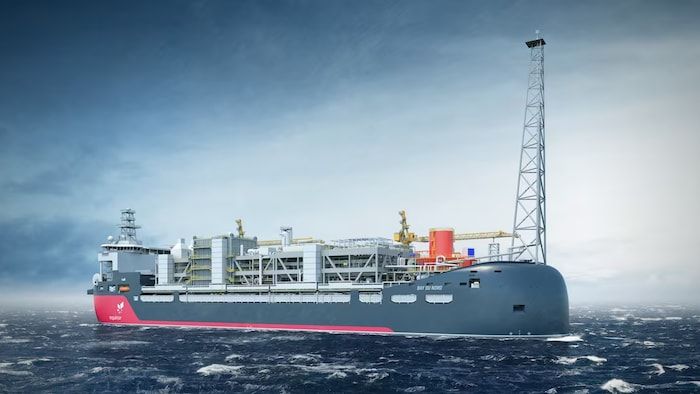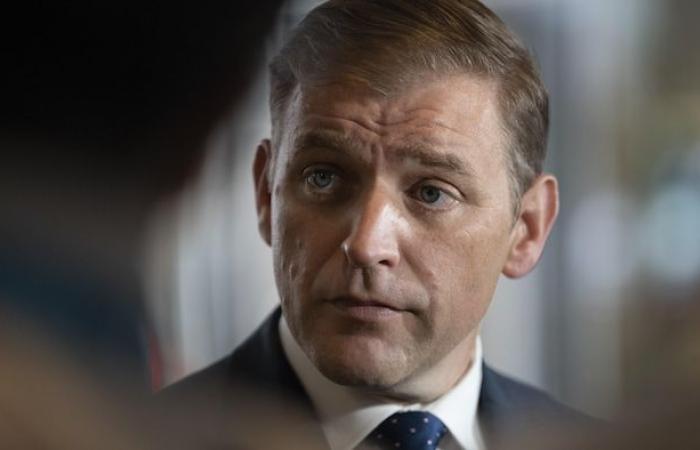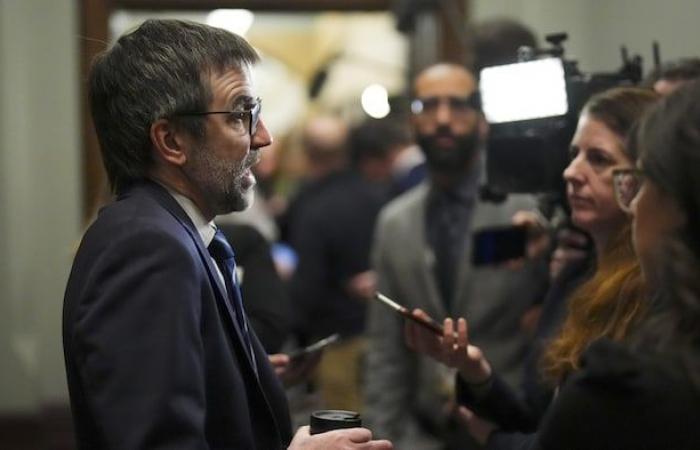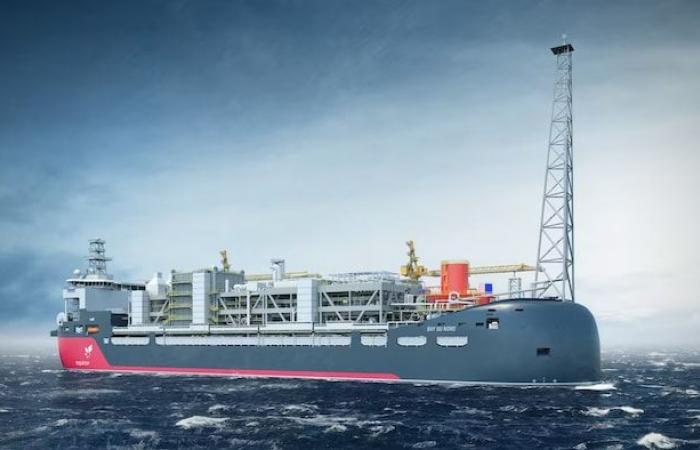Ottawa’s proposal to cap greenhouse gas (GHG) emissions from the oil sector is creating uncertainty in Newfoundland and Labrador, even though the federal government maintains the measure will not prevent the industry to develop in the province.
The draft regulation aims to reduce carbon emissions by 35% by 2030. GES oil companies compared to 2019 levels.
In my opinion, this has cast a chill and created uncertainty
affirms Andrew Parsonsthe Newfoundland Minister of Industry, Energy and Technology regarding the federal cap.
It is increasingly difficult to attract the attention of explorers
added Jim KeatingPresident and CEO ofOilCoNewfoundland and Labrador’s publicly owned oil and gas company.
Open in full screen mode
Newfoundland and Labrador Premier Andrew Furey before a meeting of the Council of the Federation in July 2024. (File photo)
Photo: The Canadian Press / Darren Calabrese
On Monday, the Prime Minister Andrew Furey issued a statement pledging to oppose any approach that has the effect of limiting oil and gas production
in the province.
Andrew Parsons believes that uncertainty surrounding regulatory issues is partly responsible for the lack of interest in exploration off Newfoundland, while the process by which oil companies acquire offshore exploration rights has not no interest for a second consecutive year.
A total of 41 parcels across more than 10 million offshore acres were available this year.
Investors will go elsewhere, where their contribution to emissions will be different from what it is here.
Jim Keatingd’OilCosays oil companies are very selective and require regulatory certainty from the states where they invest. According to him, the emissions cap proposed by Ottawa makes the industry in Newfoundland and Labrador nervous and encourages it to take a step back
.
No impact on Bay du Nord, says Ottawa
When announcing its plan to cap emissions from the oil sector, the federal government nevertheless indicated that this measure will not prevent the industry from growing. Ottawa believes production can be further increased by investing in carbon capture and other technologies.
Our detailed analysis […] shows that production in the oil and gas sector will increase by 16% by 2030, while pollution will decrease by 35%
declared Steven Guilbeault, the federal Minister of the Environment, on the show Power and Politics of CBC last month.
Open in full screen mode
Canadian Environment Minister Steven Guilbeault speaks to reporters during negotiations during a caucus meeting on Parliament Hill in Ottawa, November 27, 2024. (File photo)
Photo: The Canadian Press / Sean Kilpatrick
Gudie Hutchingsthe minister responsible for Newfoundland and Labrador in the Trudeau cabinet, was quick to say that the measure will have no impact on the Bay du Nord oil project. We will be able to develop the industry further
she insisted, in early November.
Bay du Nord is a project proposed by the Norwegian company Equinor in waters 1,200 meters deep 500 kilometers east of Newfoundland. It could represent thousands of jobs and billions of dollars in royalties for the provincial government.
Recall that Equinor put the project on hold due to inflationary pressures and now plans to develop it more slowly.
The emissions cap planned by Ottawa for 2026 would only affect GES upstream of the oil sector, that is to say emissions directly linked to production. However, the vast majority of emissions are produced at the time of combustion, underline the environmental groups which oppose Bay du Nord, in particular.
In a press release on Tuesday, the Sierra Club of Canada denounces the commitment ofAndrew Furey to defend oil production in his province and accuses him of take a stand against climate measures that could help protect communities and hold big polluters accountable
.

Open in full screen mode
Norwegian company Equinor is proposing the Bay du Nord deepwater project 500 kilometers east of Newfoundland. (Archive photo)
Photo : Equinor
The Government of Newfoundland and Labrador and OilCo are, however, not ready to give up on the oil industry. The minister Andrew Parsons recalls that it injected billions of dollars into the public treasury and created thousands of jobs. He expects it to support the economy and workforce for many years to come.
I remain very optimistic, very positive about our offshore industry. She still has a long lifespan ahead of her.
With information from Patrick Butler and of Terry Robertsof CBC








